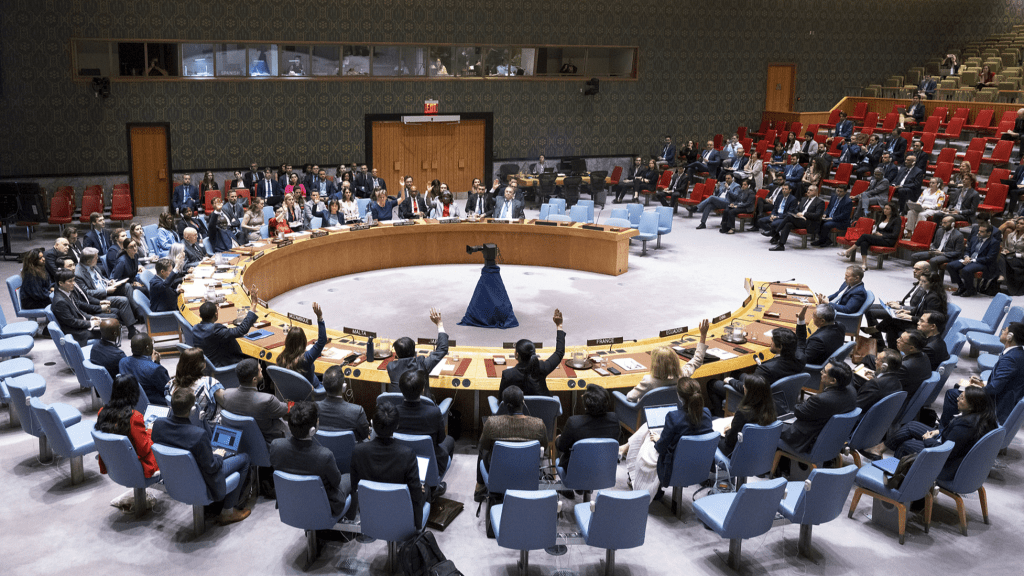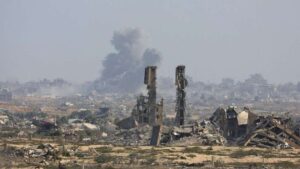UN Security Council Adopts U.S.-Drafted Resolution for Three-Phase Ceasefire in Gaza

New York, The Gulf Observer: On Monday, the UN Security Council adopted a U.S.-drafted resolution aimed at achieving a comprehensive ceasefire in Gaza through a structured three-phase plan to end the ongoing conflict. The resolution, identified as Resolution 2735, was passed with a significant majority of 14 votes in favor, with Russia abstaining.
Resolution 2735 calls for both parties to the conflict to implement the ceasefire proposal “without delay and without condition.” The resolution outlines specific steps to be taken in each of the three phases to ensure a sustainable end to hostilities and pave the way for long-term peace and reconstruction.
Phase One:
- An “immediate, full, and complete ceasefire.”
- The release of hostages, including women, the elderly, and the wounded.
- The return of the remains of hostages who have been killed.
- An exchange of Palestinian prisoners.
- The withdrawal of Israeli forces from populated areas in Gaza.
- The return of Palestinians to their homes and neighborhoods throughout the enclave, including in the north.
- The safe and effective distribution of humanitarian assistance on a large scale.
Phase Two:
- A permanent end to hostilities.
- The release of all remaining hostages in Gaza.
- A full withdrawal of Israeli forces from Gaza.
Phase Three:
- Initiation of a major multi-year reconstruction plan for Gaza.
- The return of the remains of any deceased hostages still in Gaza to Israel.
The resolution emphasizes the urgent need for immediate action and cooperation from both sides to facilitate the return to normalcy and ensure the safety and well-being of civilians affected by the conflict.
The adoption of Resolution 2735 represents a significant step towards peace, aiming to address both immediate humanitarian concerns and long-term rebuilding efforts in Gaza. The UN Security Council’s call for a phased approach underscores the importance of structured, incremental progress in resolving the conflict and fostering stability in the region.


